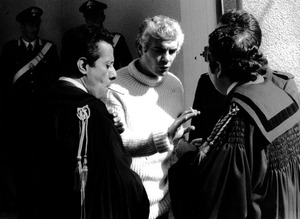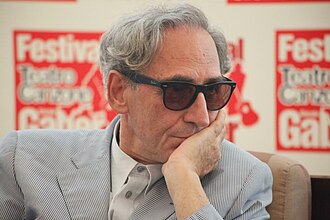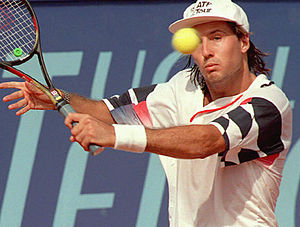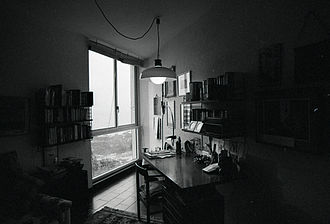Discover Your Roots
SIGN UPDiscover Your Roots
SIGN UPFranco is a male name of Spanish origin, meaning "Free." It is commonly associated with Spanish general and dictator, Francisco Franco, and also with Congolese musician Franco Luambo. The name has historical and cultural significance, with references to German music theorist Franco of Cologne. Additionally, "Franco" is used as a prefix when referring to France, French people, and the Franks, a West Germanic tribe. The name is also linked to various places around the world, including a village in Portugal, a municipality in Spain, and an unincorporated community in the United States. Furthermore, "Franco" has been used in different contexts, such as in the name of a Filipino band, a fictional character in an American soap opera, and in various films and currencies.

Franco Atilio De Vita De Vito, born on January 23, 1954, in Caracas, Venezuela, is a renowned Latin Grammy award-winning singer-songwriter. He gained initial success with his solo album, which produced three Spanish-language hits in Venezuela. Signing with CBS Records in 1989, his album "Extranjero" featured a song that topped the United States Latin charts and won an MTV Video Music Award in 1990. Throughout his career, De Vita has achieved significant success, with his 2004 album "Stop" reaching the Top 10 in Latin America and the United States Latin charts, producing hits such as "Tú De Qué Vas" and "Si La Ves."De Vita has showcased his talent not only in Spanish but also in Italian and Portuguese, expanding his reach internationally. As a songwriter, he has penned songs for renowned artists such as Ricky Martin and Chayanne. His contributions to the music industry have earned him accolades, including the ASCAP Latin Heritage Award and induction into the Billboard Latin Music Hall of Fame in 2014.Beyond his musical endeavors, De Vita is multilingual, speaking Spanish, Italian, and English, and has made Madrid his home since the 1990s. With a diverse discography spanning several decades, De Vita continues to captivate audiences worldwide with his soulful and socially conscious music.

Franco "Giorgio" Freda, born on February 11, 1941, is a prominent figure in the post-war Italian far-right movement. Known for his neo-Nazi and neo-Fascist ideologies, Freda founded a publishing house for neo-Nazi thought and expressed admiration for Hitler. He was initially convicted but later acquitted due to lack of evidence for his alleged involvement in the Piazza Fontana bombing. Freda's political career began as the leader of the FUAN-Caravella of Padua, and he later founded the Group of Ar, a far-right library based on the philosophy of Julius Evola. His publishing house, Edizioni di Ar, continues to offer contemporary far-right essays and reissue works by traditionalist figures. Freda's influential book, "The Disintegration of the System," proposed a strategic alliance between the far-left and far-right to subvert capitalist society. He also criticized the MSI leadership and proposed a hierarchical, collectivist state rooted in Plato's ideals, earning him the title of "Nazi-Maoist." Freda's ideology influenced various far-right Italian groups in the 1970s. Despite legal challenges and imprisonment, Freda remains active in the far-right scene as an ideologue and publisher. His alleged involvement in the Piazza Fontana bombing and subsequent legal proceedings have contributed to his controversial reputation.

Francesco "Franco" Battiato (1945–2021) was an influential Italian musician, singer, composer, filmmaker, and painter known for his diverse musical exploration and thought-provoking lyrics. His songs, spanning various genres such as experimental pop, electronic music, avant-garde, and symphonic music, delved into themes including philosophy, spirituality, and the human condition. Referred to as "Il Maestro," Battiato's unique sound and intellectual lyrics earned him a prominent place in Italy's music scene. He collaborated with renowned Italian and international musicians and singers, including Alice and Giuni Russo, and represented Italy at the 1984 Eurovision Song Contest. Battiato's early experimental period in the 1970s saw him delve into electronic progressive rock and musique concrète, gradually transitioning to a more pop-oriented style in the 1980s, which led to widespread commercial success. His albums, such as "L'era del cinghiale bianco," "La voce del padrone," and "L'arca di Noè," solidified his reputation in Italian popular music. Battiato's legacy continues to influence and inspire music lovers and artists worldwide.

Franco Davín is a renowned tennis coach and former professional player from Argentina. Born on January 11, 1970, he achieved a career-high singles ranking of World No. 30 in October 1990 and won three singles tournaments on the ATP Tour. Known for his exceptional junior career, Davín reached the US Open Boys' Singles final and secured victory in the French Open Boys' Doubles in 1986. As a coach, he has worked with notable players, including Juan Martín del Potro, Gastón Gaudio, Grigor Dimitrov, Fabio Fognini, Kyle Edmund, Cristian Garín, Brandon Nakashima, and Veronika Kudermetova. Under his guidance, Del Potro clinched the 2009 US Open title and Fognini achieved a career-high ranking of World No. 9 in 2019. Davín resides in Key Biscayne with his wife and children. His coaching expertise, combined with his successful playing career, has solidified his reputation as a prominent figure in the tennis world.

Franco Maria Ricci (2 December 1937 – 10 September 2020) was an influential Italian art publisher and magazine editor. He is renowned for founding FMR, a prestigious art magazine published in multiple languages for over 27 years. The magazine featured notable iconological and art historical studies, and was admired by renowned figures such as Federico Fellini and Jacqueline Kennedy. Ricci's limited edition publications, characterized by their unique handmade paper and elegant silk-bound hardcovers, gained significant acclaim. In addition to FMR, Ricci also published the original edition of the Codex Seraphinianus and works by Guido Crepax. Known for his ambition, Ricci pursued the construction of the "Labirinto della Masone," the largest maze in the world, in Fontanellato. Despite the cessation of FMR's publication in 2009, Ricci repurchased the copyrights in 2015, indicating a potential return to publishing. His significant contributions to the art and publishing world have left a lasting impact.
All images displayed on this page are sourced from Wikipedia or Wikimedia Commons.We use these images under their respective Creative Commons or public domain licenses. Wherever applicable, author attributions and license information are provided. If you believe an image is used incorrectly or outside its license terms, please contact us so that we can review and correct the issue.